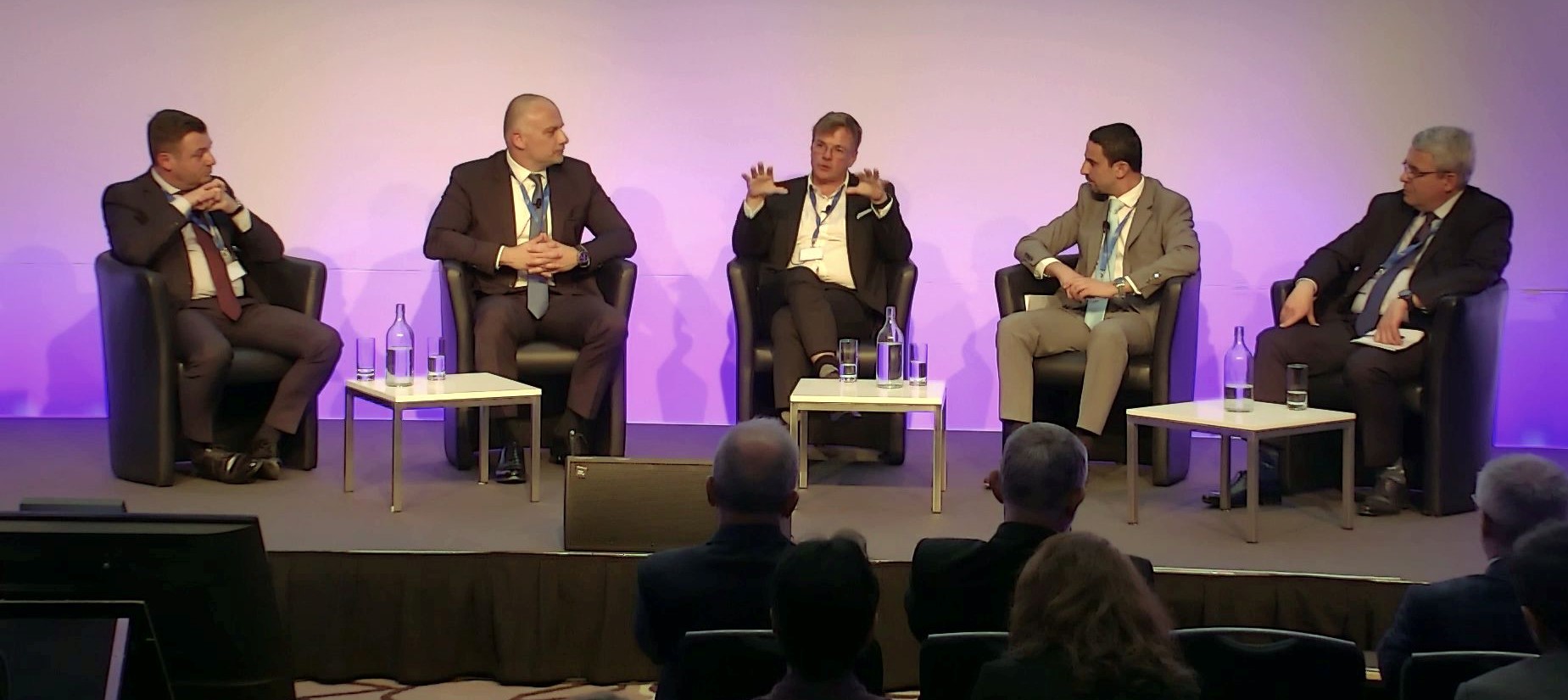
Early detection of threats and crisis is essential for Europe’s security. Measures to counter threats and respond to crises require not only the right instruments, but also above all one thing: time. Systematic, methodology-based and goal-oriented anticipation supports political, military and law enforcement decision-makers by providing time for decision-making. Intelligence services are important actors in strategic anticipation, although not the only ones. Scientific research institutions, think tanks and futurologists contribute significantly at different levels.
In the light of global digitalisation and the need to process ever larger amounts of data to generate a picture of the situation, technology development also plays a significant role. Machine learning and artificial intelligence are increasingly becoming important instruments of strategic anticipation. Methodologically, the conference was designed in the form of presentations, panel discussions and working groups to enable the broadest possible involvement of the participants.
State Secretary Elisabetta Belloni, Coordinator of the Italian Intelligence Services, gave the opening address in her capacity as current President of the ICE. The internationally renowned geopolitical futurologist and founder of Stratfor and Geopolitical Futures, George Friedman, spoke about principles and models of geostrategic developments and their anticipation.
The following three pillars were discussed:
I. What can and what does the policy maker need to know and what does intelligence anticipation do in the decision-making process?
Sir David Omand, long-time Director of GCHQ and advisor to the highest government officials in the United Kingdom, gave a presentation on the complex relationship between intelligence anticipation and policymakers. Major General Thomas Starlinger, former Federal Minister of Defence and now Military Advisor to the President of the Republic of Austria spoke about the importance of intelligence anticipation for policy makers at national level. Guillem Riutord Sampol, Head of Division Integrated Approach for Security and Peace, EU External Action Service, spoke on the specificities of anticipation, early warning and strategic communication for security decision-making in a multinational environment. Florence Gaub, Deputy Director of the European Union Institute for Security Studies, has been a lead author on several European Union foresight studies. She talked on the scope and limits of scientific engagement with foresight and its relevance for decision-makers.
In a panel discussion with the speakers , moderated by the organiser and involving the audience, the question was addressed how the field of relations between decision-makers and the actors of strategic anticipation (intelligence services and think tanks) can be made more efficient and how the interaction of the latter can be optimised.
II. What can and cannot be expected from intelligence anticipation?
Melissa Graves, Professor of Intelligence Studies at The Citadel Military School (USA) has spoken about the methodological dimension of intelligence analysis and its importance for strategic anticipation. The former Deputy Director for Intelligence at the French Foreign Intelligence Service DGSE, Philippe Hayez, teaches Intelligence Policy at the Université Sciences Po Paris. In his presentation, he addressed the question of the scope and limits of intelligence anticipation as well as realistic expectations of decision-makers. Achim Werres is a Brigadier General and Division Chief Defence Intelligence at the Federal Ministry of Defence in Berlin in Berlin. He spoke about Early Warning and Early Crises Detection in the German armed forces and its multinational integration.
In a break-out session the following questions were discussed in four syndicates formed from all participants:
- Intelligence and decision makers: “Push” or “Pull” – Who knows what the decision maker needs to know? [Chaired by José Morgado, Director EU Intelligence and Situation Centre, Brussels]
- Anticipation failure: what are the possible causes of unrecognised threats from Rwanda to 9/11 and beyond? [Chaired by Radoslaw Jezewski, Brigadier General, Head of EUMS Intelligence Directorate, Brussels]
- Intelligence and science: Can a symbiosis develop between intelligence services and think tanks or just competition? [Chaired by Marco Marzi, Policy Officer, EU Early Warning System and Conflict Prevention, Brussels]
- Fake intelligence: Intelligence anticipation in times of fake news and disinformation? [Chaired by Rubén Arcos, Universidad Rey Juan Carlos, Madrid]
III. What role does methodology and technology play in anticipating threats and challenges now and in the future?
Helmut Leopold, Head of the Center for Digital Safety & Security at the Austrian Institute of Technology, published on the topic of machine learning and artificial intelligence, among others. He spoke on the question of the possibilities and limits of AI as a means of IT-supported anticipation. Wolfgang Schneider from IBM Consulting has a leading position in the development of IT-supported systems for the early recognition of crisis developments. He spoke about his experience in this field as well as about the development potential and limits of this technology. Christina Corbane from the European Commission’s Joint Research Centre and Anja Palm from the European External Action Service jointly presented the model for anticipating violent conflicts developed by the JRC and applied within the EEAS. Emily Munro is Head of Strategic Anticipation at the Geneva Centre for Security Policy. Among other things, she directs courses on strategic foresight at the GCSP that address the mindset of strategic anticipation, the process & methods, and integrating foresight. She spoke about ways of thinking and qualitative methods of strategic early warning. This panel ended with a moderated panel discussion with the speakers, exploring the question of whether the traditional scientific field of conflict between qualitative and quantitative methods of social science research is also present in the field of strategic anticipation and, if necessary, could also be expanded to include the technological dimension.
Adrian Părăluţă, Head of Strategic Analysis Directorate, Romanian Intelligence Service, introduced the final panel with a presentation on Horizon Scanning, from reactive to proactive organisations.
In a concluding panel discussion, Major General Sascha Bosezky, Head of the Austrian Strategic Intelligence Agency, Adrian Părăluţă, Daniel Markic, Head of Security and Intelligence Agency Croatia, Omar Haijawi-Pirchner, Head of Directorate State Protection and Intelligence Service Austria, and François Fischer, Director of ICE Permanent Secretariat France, exchanged views on possible implications for the European Intelligence Community.